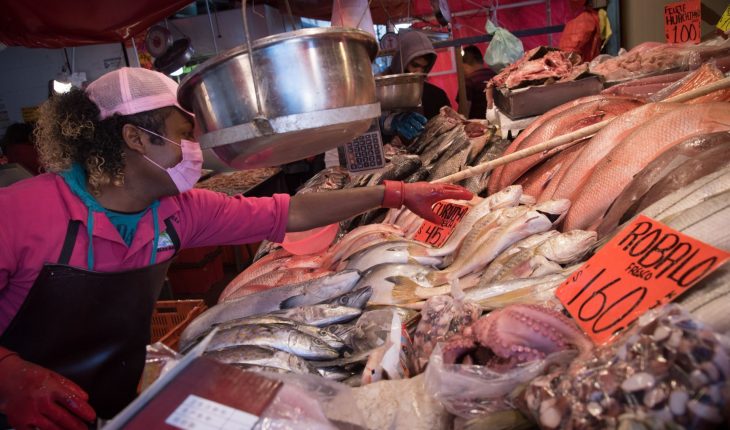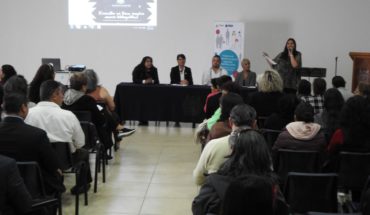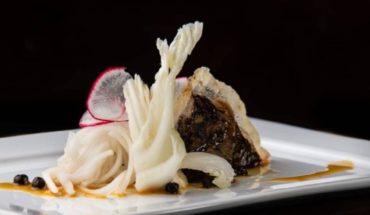You go to the fishmonger with the idea of buying huachinango for that recipe you just saw on YouTube. You don’t mind paying more than 200 pesos for half a kilo. What you don’t know is that you’ve been deceived. What you carry in the bag is not huachinango but tilapia or basa, species up to 7 times cheaper than the real huachinango.
If you live in Guadalajara, Ensenada or Merida it is likely that almost half the time you buy a certain species of fish you will be deceived.
The GatoXLiebre 2.0 study of the Oceana organization notes that on average 44% of the time we bought fish we were tricked and given another cheaper species. This affects our economy, the health of the seas and fishermen.
The affectation of the pocket
Species substitution makes us pay high prices for low commercial value species, such as the base, imported from China and Vietnam.
“Sometimes the price difference between the substituted species and the substitute became 700%,” the study says.
Some examples: the replacement of robalo, with a price of 490 pesos per kilo, and huachinango (412 pesos) were exchanged for tilapia that costs about 68 pesos.
While the goat, about 495 pesos per kilo and the mere 295 pesos were replaced by base, at a cost of 80 pesos per kilo.
Oceana found that species such as the mako shark (Isurus oxyrinchus) are sold instead of fish such as the goat. The species in which the deception reached 100%, according to the report, is the marlin that was replaced by tuna.
The phenomenon of species substitution is defined as deception when buying fish “since we buy a species with a trade name, but in reality the product we receive is another completely different fishing species, often of lower price, quality and nutritional value”.
It is not known for certain where the deception occurs, as it can occur since the product is landed, when it is processed or at points of sales such as fishmongers and restaurants. The analysis clarifies that not everyone involved is aware of the deception.
The cities of deception
Oceana analyzed fish from three cities in Mexico: Ensenada-Tijuana, Guadalajara and Mérida.
Guadalajara
The city where consumers were most deceived was Guadalajara, almost in 1 in 2 purchases consumers received another species and not the one they paid for. This city has an average replacement percentage of 48.3%.
55% of the substitution occurred in fishmongers and 41% in restaurants.
The species that were 100% replaced by others were marlin, huachinango, saw and bass. The least replaced was the robbery (29%).
Oceana
Ensenada
Although declared a Creative City of Gastronomy by UNESCO, it has the second highest percentage of species substitution for consumers: 47%.
52% of the substitution was in fishmongers and 43% in restaurants.
The base and tilapia were the most commonly used species to replace others. While marlin, huachinango and Pacific white were also replaced 100% of the time.
In Ensenada the species mackerel, important in the local gastronomy, was replaced 16.7% of the time.
Oceana
Merida
In this southeastern city, which also has the name of Creative City of Gastronomy by UNESCO, the replacement percentage was 36.3%. This means that 1 in 3 sampled products were replaced.
Esmedregal, a regional species throughout the Gulf of Mexico, was the most substituted with 75%. Chac-chi (67%) and the mere (48%). These were replaced by species such as the base, which is imported.
Oceana
The deception that affects the sea
Species substitution does not only affect the pocket. It also harms the health of the seas, as they “consume endangered species disguised as abundant species,” oceana says.
An example is the sale as marlin and goat a species of shark that has been endangered since 2019.
In deception it also affects Mexican fishermen, because while they have permits and obey a number of rules, such as maximum fishing quotas and periods of vede, species substitution allows illegal products to enter the market.
Which disadvantages fishermen because of unequal competition.
Another point against it is that species such as the base, which are imported, steal market from the domestic product caught by Mexican fishermen.
What we do at Animal Politics requires professional journalists, teamwork, dialogue with readers and something very important: independence. You can help us keep going. Be part of the Team.
Subscribe to Animal Politics, receive benefits and support free journalism.#YoSoyAnimal
translated from Spanish: where buying fish is a hoax
March 10, 2021 |





